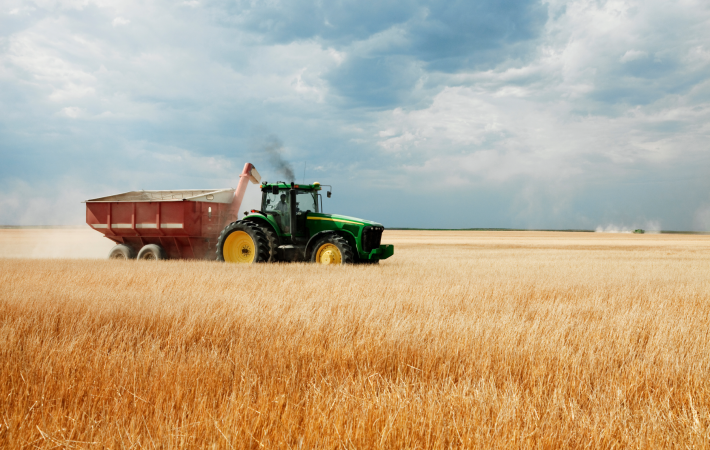04 April 2024
Could your tractor land you in trouble with the law?


If your tractor or tractor and trailer are too long, too wide, or too tall, it can have serious consequences for not only the driver but also their employer. Both the driver and their employer can be prosecuted and face substantial fines of up to £2,500 per offence.
If the driver of the vehicle is also the owner, as will be the case for many farmers, the court can impose an uplift to any fine of at least 25%.
The general limits are as follows:
The maximum length for both an agricultural tractor and an agricultural trailer is 12 metres. However, the maximum length of an agricultural tractor and trailer combined, without special permission, is only 18.75 metres.
The maximum width of a standard agricultural tractor is 2.55 metres and 3 metres when it has fully mounted equipment or interchanged towed equipment.
A tractor which weighs more than 7.25 tonnes when unladen is classed as a large tractor and has a maximum width of 2.75 metres. Tractors with flotation tyres or dual wheel systems have a maximum width of 3.5 metres.
The width of your tractor also affects how fast you can travel. The majority of tractors can travel at up to 25 mph, however, some tractors built to higher specification are permitted to be driven at up to 40 mph.
Wider tractors have lower speed limits. Tractors between 2.55 metres wide and 3.5 are limited to 20 mph and those between 3.5 metres and 4.3 metres are limited to 12 mph.
The maximum height of all agricultural vehicles and combinations (i.e. tractor and trailer) is 4.65 metres, except for those transporting baled produce such as hay, silage, straw, or other animal fodder which has no height limit. You must still ensure the tractor, trailer, and load is safe and properly secured.
There are a limited number of defences which may be available to you when charged with such an offence. There are also mitigating factors which, if put before the court, can reduce the level of fine you receive.
Given the large fines that can be imposed, it is essential that you get legal advice and representation as soon as possible after receiving a Notice of Intended Prosecution or Court Summons. Get in touch with our dispute resolution team today.

Contact David to discuss this further.